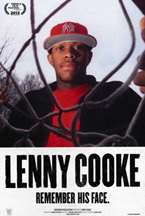(In honor of March Madness and the Final Four, Guru of Go is premiering on ABC at 4pm today—Saturday, April 3, 2010—before screening tomorrow on ESPN U. Visit the film’s page at the 30 For 30 website for all screening information.)
In my review of the previous installment in ESPN’s great 30 For 30 series, Winning Time: Reggie Miller vs. The New York Knicks, I noted that it’s virtually impossible for me to determine how well these documentaries would play to a movie buff who didn’t care about sports. Not that they need reach across that divide, of course. But having said that, Bill Couturie’s Guru of Go is definitely one for the diehards.
Guru of Go tells the story of head basketball coach Paul Westhead, who won a championship with the Los Angeles Lakers early in his career but was subsequently let go when Magic Johnson expressed distaste with his style (when it comes to once-in-a-lifetime players like Johnson, the player wins that argument). After another unsuccessful one-year stint—this time with Philadelphia 76ers—Westhead began to wonder if his career was over before it had fully begun. But that’s when he was offered a head coaching position at an off-the-map college, Loyola Marymount University. Anxious to implement his controversial style of play known as “the system,” Westhead said yes.
In layman’s terms, this was Westhead’s style of basketball: hurry up!, shoot!, run!, shoot!, launch three pointers!, hurry up!, shoot!, run-run-run!, shoot-shoot-shoot!, more three pointers!, keep running!, keep shooting!, hurry up!
At first, Westhead and his “system” were mocked by pretty much everyone, but when he inherited two new transfers who, like him, grew up in Philly, all that changed. Hank Gathers and Bo Kimble were best friends who headed to the West Coast to play for Pac-10 force USC, but when new coach George Raveling arrived, it was clear that they were the least of his priorities. When their scholarships were dropped, they knew they had to escape. Cue Westhead, who pitched them on his run-and-uzi style, which they happily embraced.
The results were breathtaking. In the 1989/1990 season, LMU averaged 122 points per game, a single-season record that stands to this day. This furious passion and dedication could most directly be attributed to the team’s heart and soul, Gathers, a 6’7” forward who was as quick as a point guard and as strong as a power forward. Between him and Kimble and the rest of their lights-out shooting teammates, the future was very bright indeed.
And then tragedy struck. For those of you who remember, it’s a shock to the system to revisit that fateful day of March 4, 1990, watching the footage of Gathers becoming dizzy on court before collapsing to the ground, never to get back up. Couturie heightens the moment’s power by presenting his assembled interviewees in a barrage of silent reactions, a technique that sounds interesting in theory but feels self-conscious and distracting in practice.
Ultimately, my problem with Guru of Go is that it tries to do too much with the ball. As much as I find Westhead a worthy subject, when one confronts the Gathers tragedy it’s a bit of a shock to the system to leave that behind and show Westhead’s rise to supremacy as a WNBA coach just a few segments later (with all due respect, WNBA). When we get into the Gathers segment, and subsequent tribute by Bo Kimble in the tournament by shooting his first free throw left-handed, it can’t help but make the Westhead biopic seem like a tamer, lamer film. But in a general sense, while I understood that Couturie’s uptempo approach was done to mimic that of his subject, it still kept me from finding a steady groove.
It’s also ironic that of all the 30 For 30 docs that I’ve watched, this one reminded me the most of Without Bias, which concerns another college basketball tragedy and which left me feeling a similar sense of disappointment with the execution. In that case, my personal baggage—Len Bias was my childhood hero—made the filmmaking problems screamingly apparent. But here, I had similar issues. As it unfolded, I began preparing to write about how this was another case where the 30 For 30 producers must have hired a less-than-notable director without worrying too deeply about it, figuring this was another example of content trumping technical proficiency. Then I realized Bill Couturie won an Oscar for producing Common Threads: Stories From The Quilt. Whoops.
The point is, if this subject interests you, of course you will—and should—watch Guru of Go. I just don’t think it measures up to the very best films in the series.
— Michael Tully










